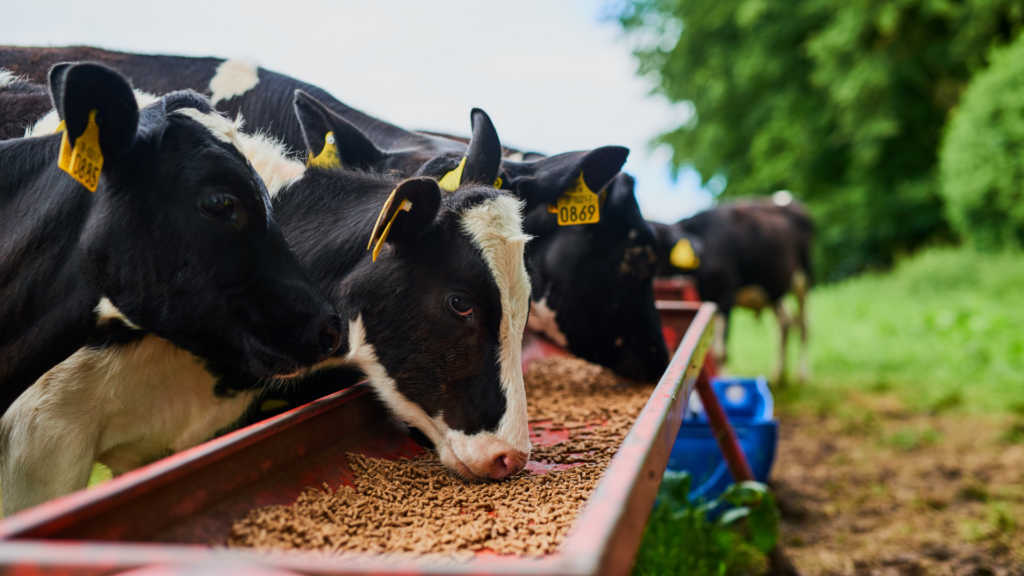The Gut Health Trio: Understanding the Difference Between Prebiotic, Probiotic and Postbiotic

In recent years, there has been a growing focus on the importance of gut health and its impact on overall well-being. Within this realm, three terms have gained prominence: prebiotic, probiotic, and postbiotic. These components play distinct but interrelated roles in maintaining a healthy gut and, by extension, promoting a healthier you. In the last six months, 80% of consumers have consumed at least one of these biotics, with 22% of those consumers not understanding the difference between each one1. Let’s delve into the differences between these essential elements of gut health.
Prebiotics: The Nourishment for Your Microbiome
Prebiotics are non-digestible compounds found in certain foods that serve as a source of nourishment for the beneficial bacteria living in your gut, also known as the microbiota. Unlike probiotics, prebiotics are not live microorganisms but rather a form of dietary fiber. When you consume prebiotics, they make their way to the colon undigested where they become food for the friendly gut bacteria.
Common sources of prebiotics include:
- Inulin and fructooligosaccharides (FOS) found in chicory root, onions, garlic, and leeks
- Soluble fiber in oats, barley, and legumes
- Resistant starch in green bananas, whole grains, and some legumes
Prebiotics support the growth and activity of probiotics and help maintain a balanced gut microbiome, which is crucial for digestive health and overall well-being.
Probiotics: The Living Microbial Warriors
Probiotics are living microorganisms (primarily bacteria and some yeast strains) that confer health benefits when consumed in adequate amounts. These “good bacteria” work by colonizing your gut and outcompeting harmful microorganisms. They also support various aspects of your health, from digestion to immune function.
Common sources of probiotics include:
- Fermented foods like yogurt, kefir, sauerkraut, and kimchi
- Probiotic supplements containing specific strains of beneficial bacteria
Different strains of probiotics have unique effects, so it’s essential to choose the right ones based on your specific health goals.
Postbiotics: The Metabolic Byproducts
Postbiotics are preparation of inanimate microorganisms or their components that confer a health benefit on the host. In human nutrition, when probiotics ferment prebiotic fibers in the gut, postbiotics are the metabolites or byproducts produced. These metabolites include short-chain fatty acids (SCFAs), vitamins, enzymes, and other compounds. Postbiotics play a vital role in maintaining gut health and influencing overall well-being, even though they often receive less attention than prebiotics and probiotics.
Some key functions of postbiotics include:
- Reducing inflammation in the gut and the body
- Enhancing the gut barrier function, which protects against harmful invaders
- Supporting the immune system
- Regulating metabolic processes
Postbiotics provide a bridge between the action of prebiotics and probiotics, showcasing the intricate relationship among these three components.
Prebiotics, probiotics, and postbiotics are all integral to gut health and, consequently, your overall health. Prebiotics act as the nourishment for probiotics, while probiotics are the live microorganisms that help maintain a balanced gut microbiome. The fermentation of prebiotics by probiotics results in postbiotics, which offer various health benefits.
A balanced diet that includes prebiotic-rich foods, probiotic sources, or supplements can contribute to a healthy gut ecosystem, leading to improved digestion, a robust immune system, and overall well-being. Understanding the distinctions between these three elements can empower you to make informed choices for your gut health, which is increasingly recognized as a cornerstone of your overall health.
References
1 Sensient Proprietary Research


